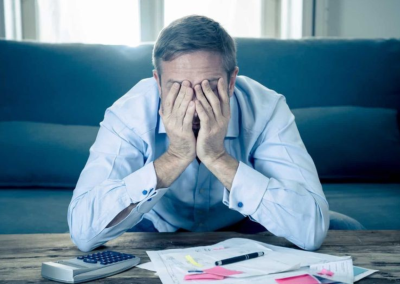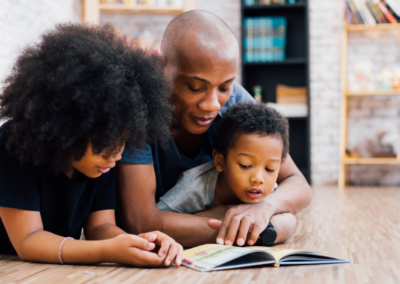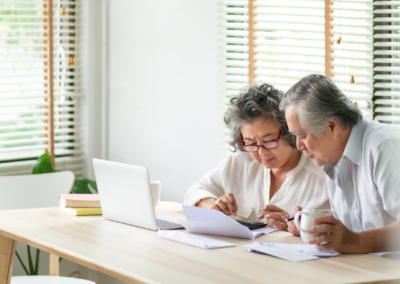Debt Solution
Declaring Personal Bankruptcy
Bankruptcy is a legal process that provides financial relief when you can no longer repay your debts. Upon completion of a bankruptcy you are discharged from your debts, meaning you longer have to pay them back.
Once You Declare Bankruptcy
Once you declare bankruptcy you will be relieved from the harassment by those you owe money to and legal actions taken against you, meaning:
Creditors can no longer contact you
Your wages can no longer be garnished
Any active lawsuits are ended
Frozen funds are released
It is important to consider that while you may think being relieved from all of your debts is the quick and easiest way to get your finances back on track, filing for personal bankruptcy can have a significant impact on your life. Our Licensed Insolvency Trustees at Crowe MacKay & Company are committed to working with you to review all the options available, such as a consumer proposal, before deciding to declare personal bankruptcy.
Do I Qualify for Personal Bankruptcy?
To be eligible for bankruptcy, you must be insolvent. There are several factors to consider when determining whether you are insolvent, including:
Residing, conducting business or owning property in Canada
Having debts greater than $1,000
Not being able to satisfy financial obligations as they become due
Having more debt than the value of the assets that you own
Although you may consider yourself insolvent, there may be other options besides bankruptcy. Your first step should be to contact us and meet with one of our Licensed Insolvency Trustees in Vancouver or Surrey.
How Personal Bankruptcy Works
Below is what you can expect when filing for personal bankruptcy:
1. Getting to Know You
First, you will work with one of our trusted professionals, who will review your current financial situation. This free consultation includes reviewing your current income and expenses (child/spousal support, medical expenses, child care costs, etc.) and your assets.
2. Declaring Bankruptcy
Once we determine your financial state, we will file the appropriate forms with the Office of the Superintendent of Bankruptcy (OSB). Once the OSB has accepted the forms, you will be in bankruptcy and your creditors will be notified.
3. Selling of Assets
Your non-exempt assets will be assigned to us for resale to begin the repayment of debt to your creditors; this may include property acquired during your bankruptcy. Certain assets may be exempt from seizure, such as clothing, tools of the trade, cars, RRSPs, and your principal residence. This will be discussed during your initial consultation.
4. Surplus Income Payments
Depending on your income level, you may be required to make payments to us (your Trustee) for distribution to your creditors during your bankruptcy term.. These are called surplus income payments.
Surplus income may arise if your household income exceeds the prescribed standard set by the OSB. This calculation varies depending on your family size and income.
5. Term of Bankruptcy
Bankruptcy terms vary but typically range between 9 and 21 months for first-time bankrupts depending on whether or not they have surplus income.
My Duties to Perform During Personal Bankruptcy
Once you have declared personal bankruptcy, you must fulfill specific duties to get discharged. Some of the essential tasks are:
Making the required surplus income payments
Attending two counselling sessions
Reporting your monthly income and expenses
Disclosing all your property and provide documents requested by us (the Trustee)
Surrendering all non-exempt assets along with your credit cards to the Trustee
Providing the Trustee with your income tax information
Upon completing all these duties, you will be eligible for automatic discharge. If you are not compliant with these activities or provide false information, may not receive your discharge from bankruptcy without additional requirements.
Personal Bankruptcy FAQs
Benefits of Filing for Personal Bankruptcy
Some of the advantages of filing for personal bankruptcy include:
- No longer receiving calls from creditors: We will deal with your creditors on your behalf. Filing for personal bankruptcy prevents creditors from continuing or commencing any action against you, preventing them from making harassing calls, suing, or sending threatening letters to you.
- Terminating any current legal proceedings: Wage garnishments and legal proceedings will also be stopped when you declare personal bankruptcy.
- Keeping certain assets: When filing for personal bankruptcy, while you will have to give up assets, you will be able to keep certain items. Each province has its exemptions. Contact your Crowe MacKay & Company trusted Licensed Insolvency Trustee for more information on your region’s exemptions.
What Happens to My Income After Declaring Bankruptcy?
Your income is unaffected by bankruptcy, but you must report your monthly income and spending to us (your LIT) when you file for bankruptcy. You may also be required to make surplus income payments to the bankruptcy depending on the amount of your income. You are also required to notify your Trustee of any changes in your income during the proceedings.
What Happens to My Assets After Declaring Personal Bankruptcy?
When you declare personal bankruptcy, you agree to assign your non-exempt personal assets to the Trustee. Certain things are exempt from seizure, including clothing, tools of the trade and retirement plans.
What Happens to My Debts After Declaring Personal Bankruptcy?
Declaring personal bankruptcy will not always clear all your debts. Some debts, such as child support payments, some student loans and criminal fines, are not included in the bankruptcy.
Contact Our Trusted Licensed Insolvency Trustees
If you’d like to connect with one of our Licensed Insolvency Trustees in Vancouver or Surrey, call (604) 689 3928, email [email protected], or fill in the form below.
Book a Free Consultation
Crowe MacKay & Company follows the practices laid out by the Canadian Anti-Spam Legislation and respects the privacy concerns of our clients and contacts.




